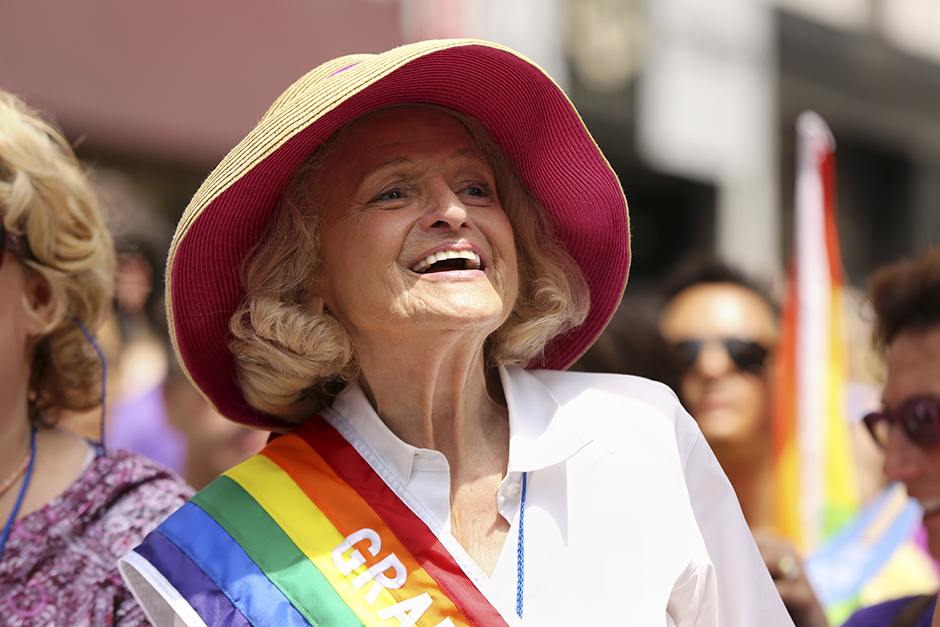
Edie Windsor marches as grand marshal of New York City’s 2013 gay Pride parade. Photo by James Estrin of The New York Times, visa MSNBC.com.
UPDATE: President Barack Obama has issued a statement on the death of Edith Windsor. He said, in part, “America’s long journey towards equality has been guided by countless small acts of persistence, and fueled by the stubborn willingness of quiet heroes to speak out for what’s right. Few were as small in stature as Edie Windsor – and few made as big a difference to America.”
The LGBT community lost a hero today.
Edith “Edie” Windsor, the woman whose battle to have her marriage legally recognized by the federal government, died today (Tuesday, Sept. 12) in Manhattan, at the age of 88.
Her second wife, Judith Kasen-Windsor, whom she married in 2016, confirmed her death but did not specify the cause, according to the New York Times.
It was Windsor’s legal victory at the U.S. Supreme Court in her challenge to the Defense of Marriage Act — which prohibited the federal government from granting legally-married same-sex couples the 1,138 benefits given married opposite-sex couples — that set the stage for the Obergefell ruling, issued two years later, to the day, that declared marriage equality to be the law of the land.
Windsor’s battle started in 2010, when she filed suit following the death of her first wife, psychologist Thea Spyer. The two women had lived together for some 40 years when, in 2007, they were legally married in Canada. But when Spyer died in 2009, The IRS refused to recognize Windsor as Spyer’s legal spouse and denied her the unlimited spousal exemption for federal estate taxes that married opposite-sex couples enjoyed.
Windsor was forced to pay $363,053 in inheritance taxes. And so she sued, in 2010, to get her money back. The U.S. Supreme Court, affirming two lower court rulings, issued its decision on June 26, 2013, overturning that section of DOMA that prohibited federal recognition of same-sex marriage, citing the 5th Amendment guarantee that no person shall be “deprived of life, liberty or property without due process of law.”
That SCOTUS ruling stopped short of instituting marriage equality overall. That came on June 26, 2015, when the Supreme Court issued its Obergefell ruling.
Edie Windsor married Judith Kasen-Windsor, a banking executive she met at an LGBT rights event in 2015, on Sept. They lived in Manhattan and Southampton, and Kasen-Windsor is her only survivor.
Read more of the story of her life at The New York Times.















